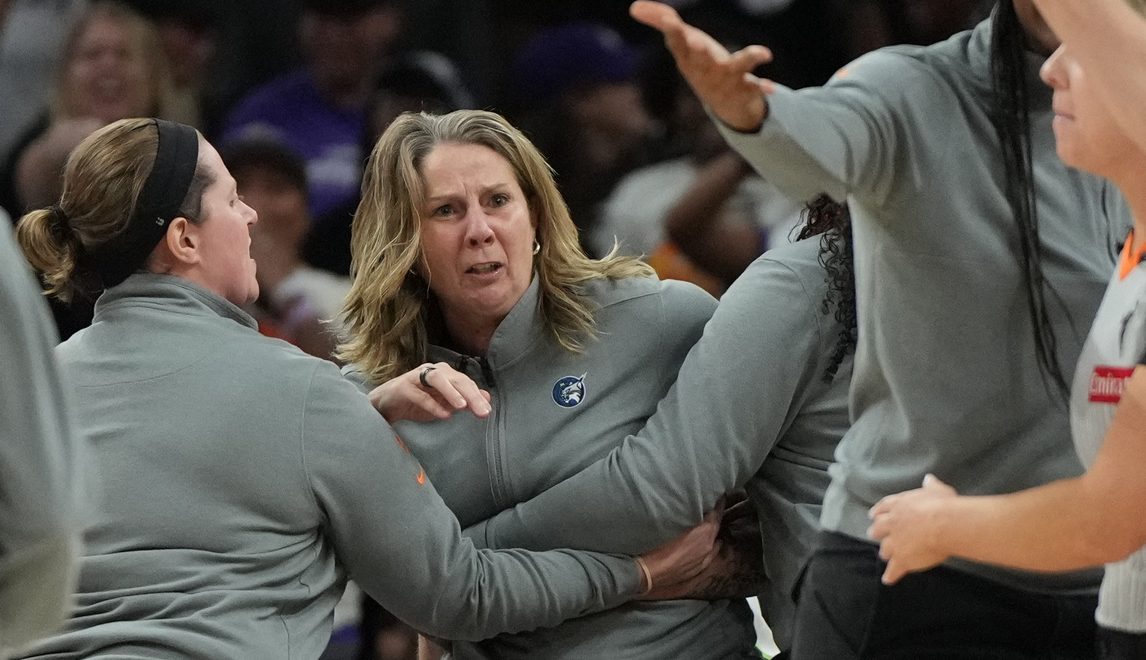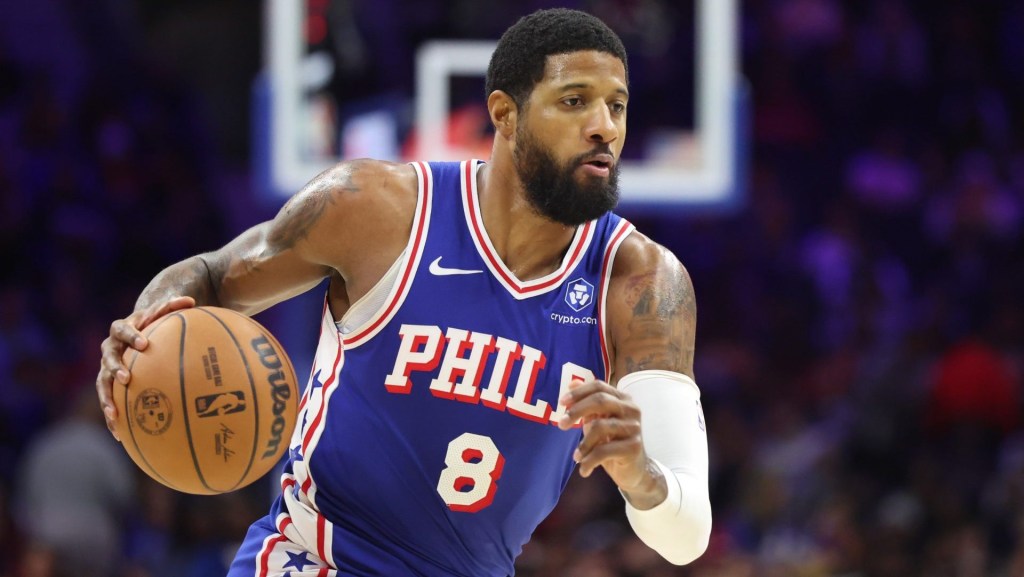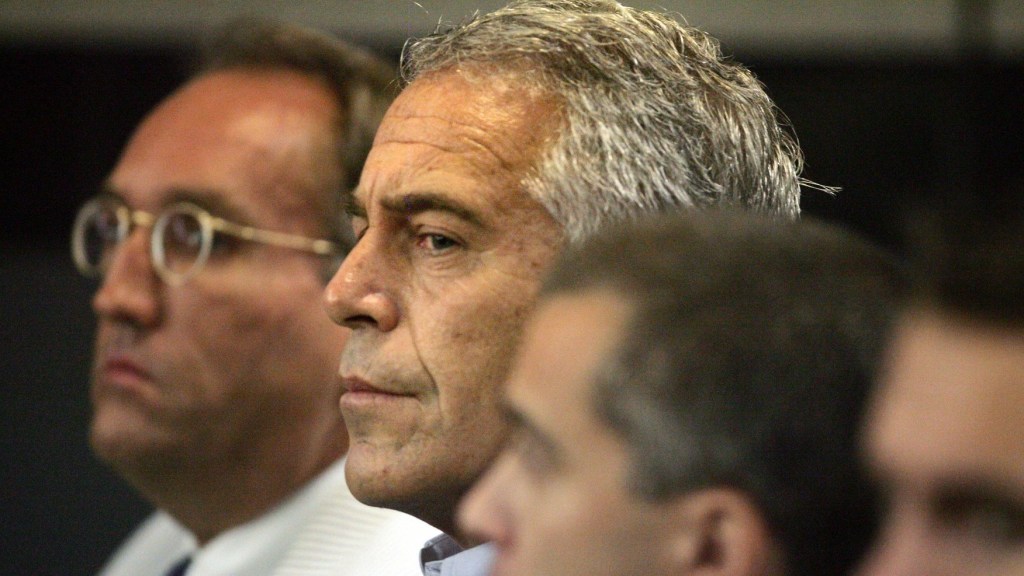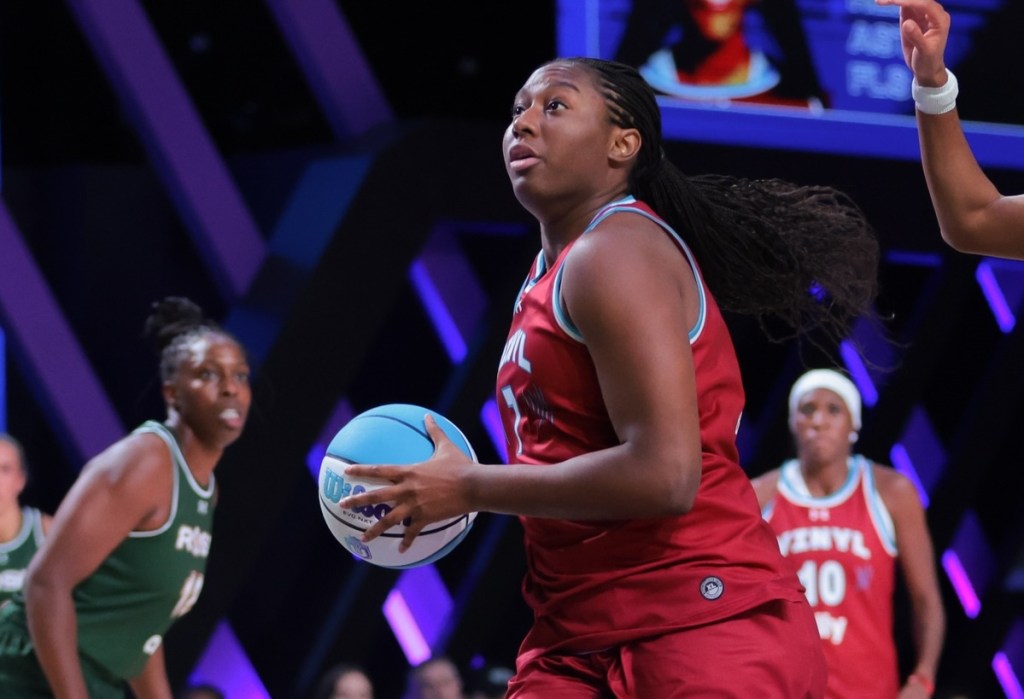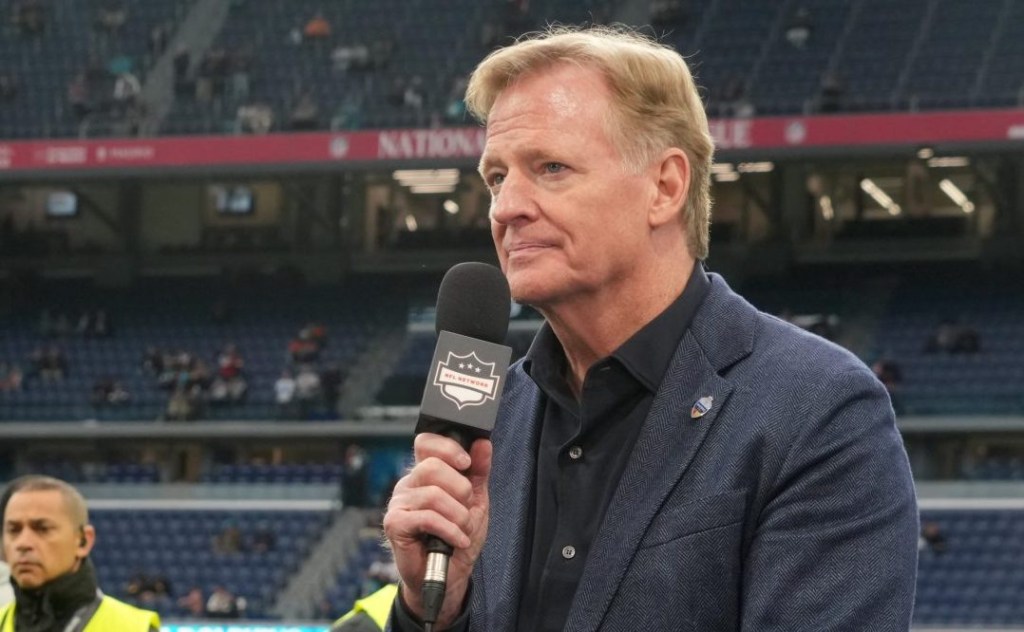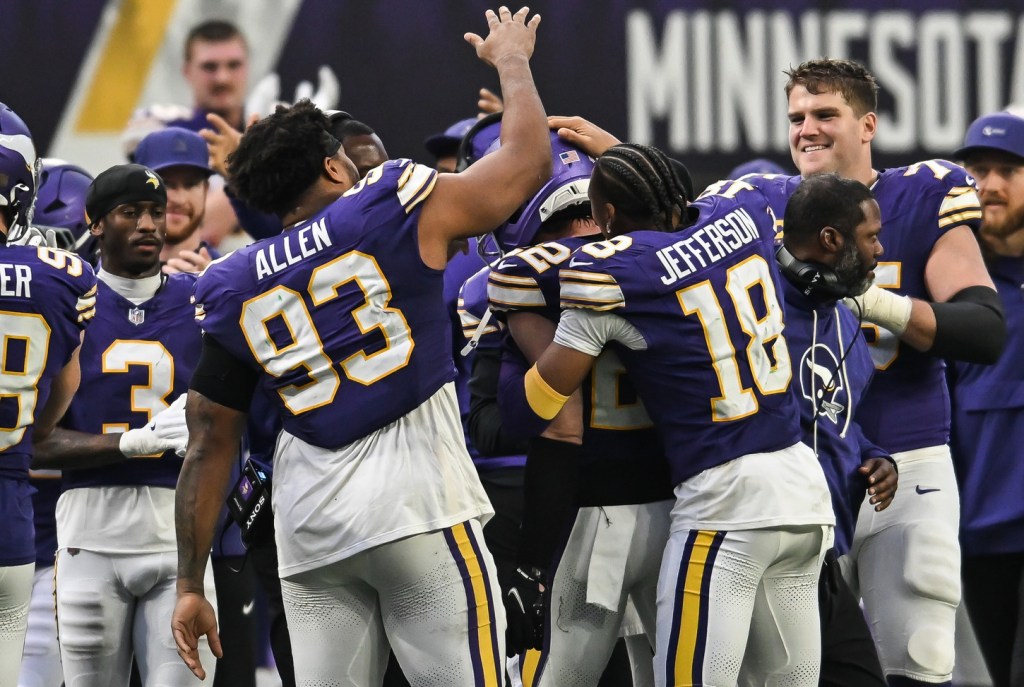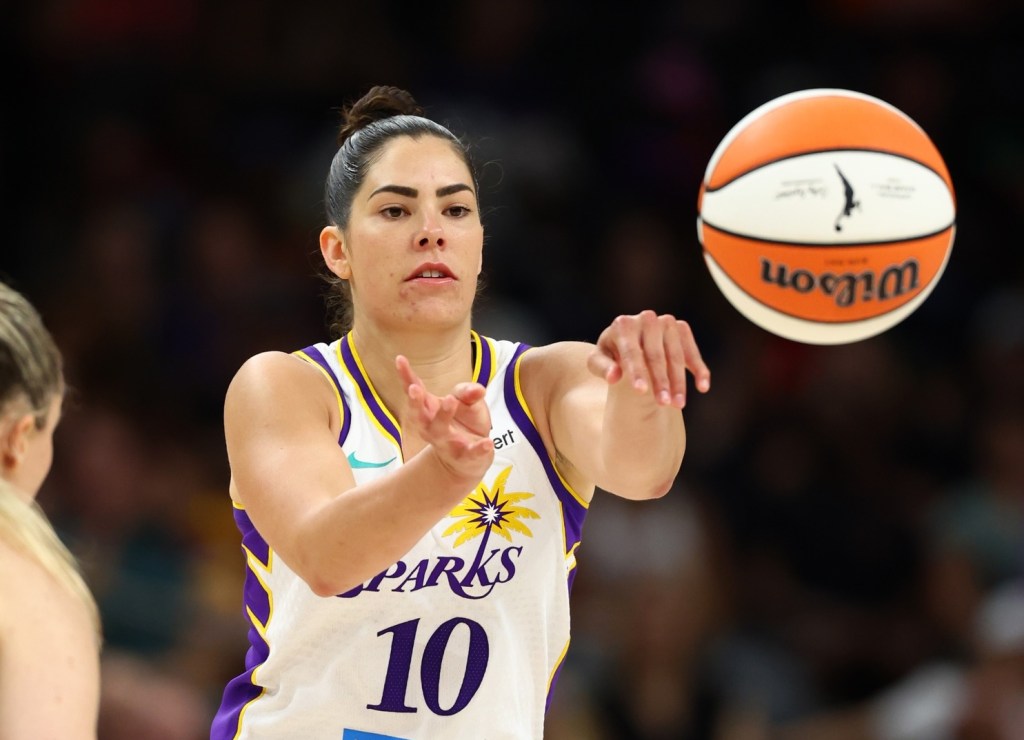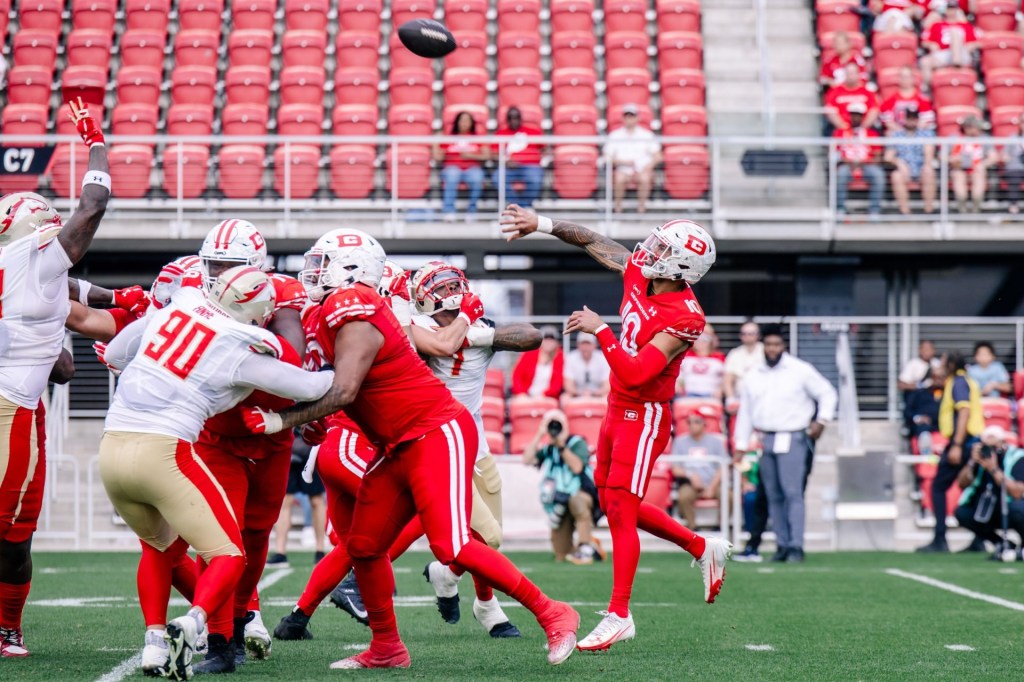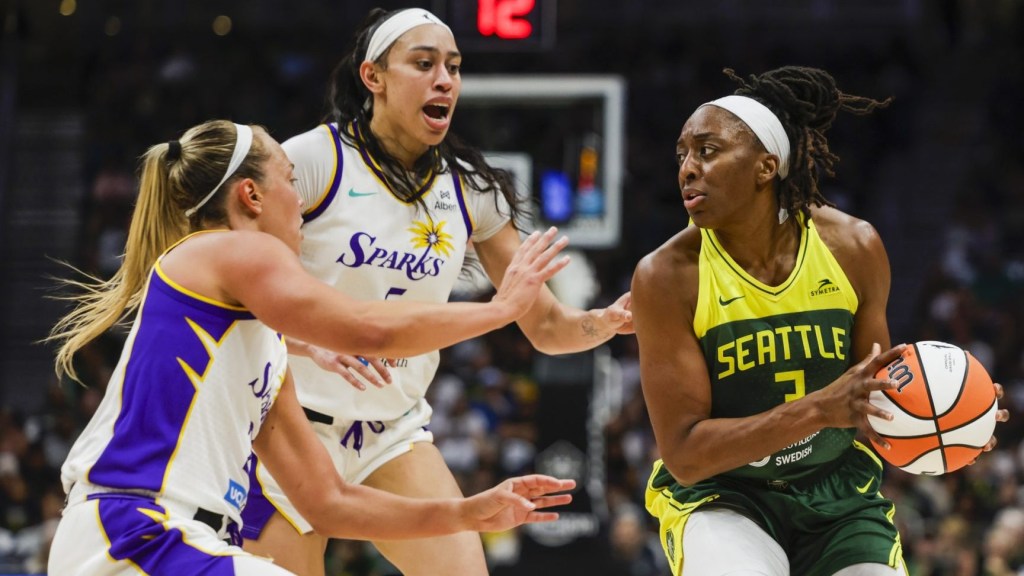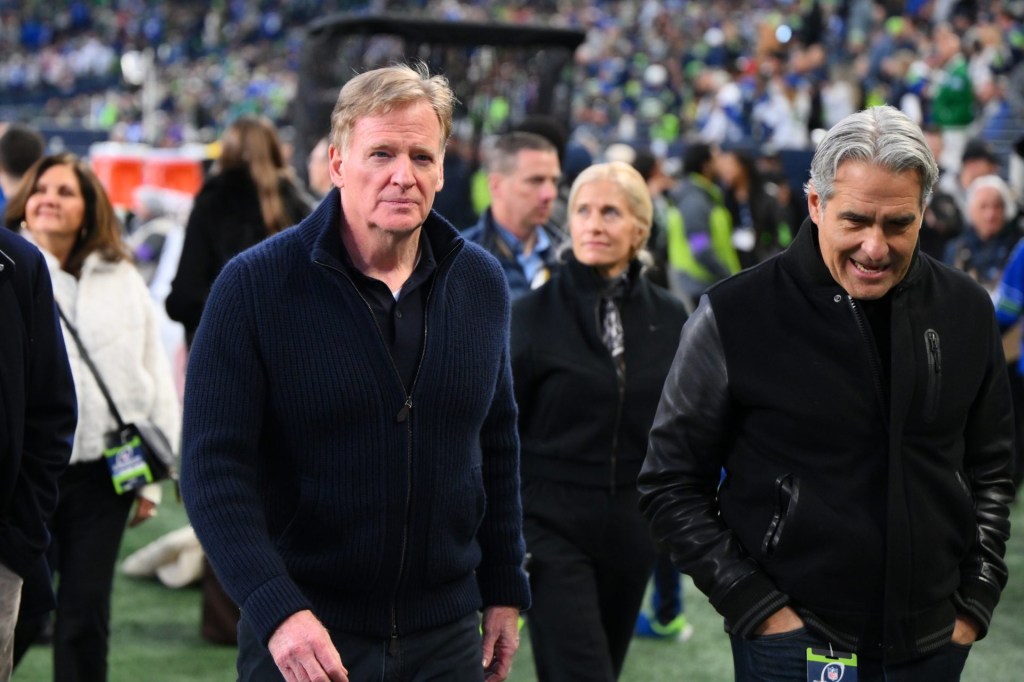The WNBA has an officiating problem.
Minnesota Lynx coach Cheryl Reeve’s Game 4 suspension—which stemmed from her public frustration with the league’s poor officiating—is merely the latest incident spotlighting what’s believed by many to be a pervasive issue in the WNBA.
“The officiating crew that we had tonight, for the leadership to deem those three people semifinal-playoff worthy, it’s fucking malpractice,” Reeve said during her postgame press conference Friday.
Reeve’s reaction has been deemed excessive by some, but her experience with postseason officiating issues is both lengthy and devastating. Last season, Reeve was at the center of another officiating controversy when she said the 2024 WNBA championship was “stolen” from the Lynx. This reaction was the result of a foul call on Lynx center Alanna Smith, which led to a pair of free throws by New York Liberty forward Breanna Stewart, forcing overtime. The call was upheld after the Lynx challenged it, and the Liberty went on to win Game 5, 67-62 in overtime.
A year later, Reeve received a one-game suspension due to “conduct and comments during and following” the Lynx Game 3, 84-76 loss to the Phoenix Mercury on Friday night, the league announced on Saturday. The four-time championship-winning coach was ejected with 21.8 seconds left in the game following a no-call on a steal that resulted in Lynx forward Napheesa Collier being helped back to the locker room.
Mercury guard Alyssa Thomas made leg-to-leg contact with Collier after swiping the ball loose. She subsequently scored on the other end while Collier was left clutching her left ankle. Reeve had to be restrained by colleagues as she took to the court to scold officials.
The National Basketball Referees Association defended the no-call in a social media post.
“This is NOT a foul,” the NBRA shared on X. “Thomas legally gets to the ball and knocks the ball loose prior to any contact. The leg to leg contact is incidental once the ball is clearly loose.”
The Lynx will be without Reeve and Collier—who was ruled out with a left ankle injury—for their must-win Game 4 in Phoenix on Sunday night. Reeve will serve her one-game suspension from her hotel room, a team source told Front Office Sports, as associate head coach Eric Thibault acts as her replacement.
There is a feeling of disappointment amongst the Lynx roster that they will be without Reeve and Collier, a team source said, but the overall belief is “we got you.”
A Broken System?
While this specific no-call from Game 2 will be debated, Reeve’s frustration with officiating is not distinct from that of other coaches and executives around the WNBA.
Multiple sources who were granted anonymity due to the WNBA’s standard of fining those who publicly criticize officiating described a broken system and an overall concern over the standard of training and experience level. According to these sources, the league’s best officials have progressed to the NBA, while the opposite occurrence—NBA officials working in the WNBA—is rare. There is also a concern over the lack of consistency when it comes to calls and the level of physicality that is permitted.
“The physicality is out of control,” Aces coach Becky Hammon said after her team’s 90-68 Game 2 win over the Indiana Fever. “I mean you can bump and grab a wide receiver in the NFL for those first five yards but you can do it in the W for the whole half court. You put two hands on someone like that it should be an automatic foul. Freedom of movement? There’s no freedom.”
The inside physicality that once was a constant point of discussion when it came to officiating has transitioned as the five-out offense became more of a staple in the WNBA. This has raised the issue referenced by Hammon of players’ freedom of movement. The physicality at the point of attack and on the perimeter for players cutting or in off-ball actions has reached an unprecedented level in the opinions of multiple coaches and executives around the league.
Multiple sources noted to FOS a shift in physicality that they felt was allowed beginning in 2024.
The league has an inquiry submission site that allows teams to submit plays that they want to receive further evaluation. Some teams heavily utilize this resource while others expressed a feeling that the time spent combing through questionable plays isn’t worth it.
Officiating is a point of emphasis during the league’s yearly competition meetings. Multiple sources told FOS that it’s expected to be an even bigger discussion point this offseason.
“Officiating seems years away from being at the level you would expect in the WNBA,” one general manager told FOS.
